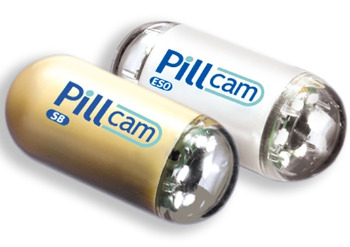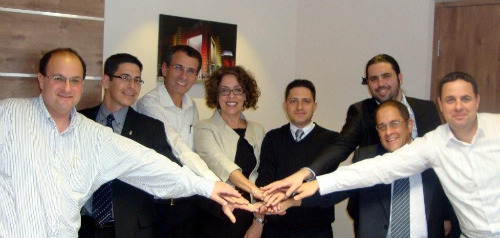Hoping to reverse Israel’s brain and biotech innovation drain, the new NGO BioNegev plans to transform the Negev Desert into a major biotechnology hub.

Israel is known for a few things beside camels, falafel, the Old City of Jerusalem and ‘the conflict.’ The country’s high-tech and telecom entrepreneurs are on investors’ watch lists; its agriculture industry reaps some of the juiciest fruits for Europe; and biotech innovation – the merging of life sciences with medical applications – is one of its key industries.
However, rather than develop their brilliant biotech ideas at home, local scientists tend to seek to sell them abroad. This means that many potentially life-changing concepts are scooped up to be developed elsewhere, and in some cases they never see the light. Local biotech entrepreneur Shay Yarkoni is looking to reverse the trend of exporting brains and ideas, with his newly-launched NGO BioNegev.
Yarkoni is building a powerful biocluster of companies in the Negev region with counsel from the European Union and in partnership with Ben Gurion University of the Negev, local incubators, municipalities and government bodies. He is already signing deals with shareholders, including a local hospital. So far, the annual Biomed international conference has provided access to Israel’s thousand or so biotech companies, and with drugs like TEVA’s Copaxone for the treatment of multiple sclerosis, and the camera-in-a-pill made by Given Imaging, Israeli pharma companies and medical device innovators have unquestionably improved lives across the globe.
Yarkoni is working to increase successes like these, by growing Israeli biotechnologies in a place where so far little has flourished, and transforming Israel’s Negev Desert, 70 miles or so south of Tel Aviv, into a biotechnology hub. His plan is to offer young researchers and companies a leg up into the industry from a location where they can develop and mature technologies and export them abroad.
A biotech activist
It’s not as if Yarkoni has a lot of free time on his hands. While one of his companies, the Styx stem cell firm, looks promising, as yet he hasn’t had any major exits in biotech. Yet he devotes much of his time to BioNegev. “It’s not because I can afford to, but because I can’t stop myself,” Yarkoni tells ISRAEL21c shortly after returning from discussions in Europe about how to develop Israel’s Negev region into a world center for biotech.
A volunteer advisor to Israel’s Export and Trade Institute, Yarkoni says, “I am not a ‘yes man’ kind of person. I am telling them [the government] what they should do instead of what they want to do.”

His work for the institute involves taking Israeli firms to Japan, the Far East and Europe and matching up biotech companies. “I show small companies opportunities that they wouldn’t see even if they bumped into them.” Yarkoni is also a ‘go-to’ kind of guy, especially for investors and Americans interested in connecting with Israel’s biotech industry.
He has chosen the Negev Desert, “Because any biocluster needs three major ingredients: Strong IP-creating entities; the geographic area needs to be unique and it needs to have a spotlight; and the third reason – industry. There is none in the Negev.”
Yarkoni tells ISRAEL21c that what’s lacking in the Negev are enterprises with a sustainable business model. He believes that creating business there will benefit the Israeli economy, as a true, long-term solution for reversing brain drain. His plan should also open up a wide range of possibilities for the region’s depressed communities, which include a large unemployed Bedouin population and a new-immigrant society which never accessed the same education and business opportunities as did the population in the center of the country.
He’s not the only one who is interested in exploring the potential of the Negev. Last year two former Israeli army colonels founded a technology incubator in the Negev town of Yeruham with $5 million in investment from private investors.
Israel as bioregion
BioNegev is member of the Council of European Bioregions and “Israel as a whole is looked at one bioregion. Innovation and entrepreneurship. That’s something we have a lot of. There are some people who say we lose a lot by exporting it,” Yarkoni relates.
“I think there is no way a government or an authority can stop people from going out to the US for their post-doc or fellowship. The government should create work for them to return. Not create another 10 or 50 positions within the academy – but invest in the industry which could absorb these people for the long-term.”
By reversing the current trend, BioNegev hopes to positively impact both society and local biotech innovation. With no business plan, the group’s 10-year goal is to collect around 100 companies under its umbrella. The idea is not to create new overhead, but to collect minds, money, facilities and service providers, and grow biotech into a mature industry in Israel.
“All these companies will sell and partner with one another and have the basis to merge to become strong, rather than to be sold and vanish,” hopes Yarkoni.
The ultimate multi-disciplinarian
Born in Tel Aviv in 1958, Yarkoni is a trained obstetrician-gynecologist who has helped to secure dozens of millions of dollars for biotech companies in Israel. After serving in an elite engineering/software unit in the Israel Defense Forces he went on to study to be a physician and scientist at the Hebrew University (HU) of Jerusalem.
Describing himself as “a jack all trades and master of none,” Yarkoni completed a PhD in protein engineering and biochemistry also at HU from 1993 to 2000, and with at least 60 peer-reviewed articles to his credit, and more than a dozen patents, he possesses the excitement and motivation of a typical activist. His passion is biotech, his mission is to see solutions that work in Israel, and the nucleus of his mission is the Israeli desert. His business reach extends across the world, via various patents, startups and the companies he consults.
For more than ten years Yarkoni has held entrepreneurial and senior management positions in biotechnology and life sciences companies. Among other executive positions he was the CTO of Collgard and the CEO of Target-In.
Residing north of Tel Aviv in the town of Kfar Saba, the married father of four is the ultimate multi-disciplinarian – “I can speak with any components of the biotech industry in their own language; scientists, the money people, and the government; three or four cultures that don’t often meet and which have a hard time understanding each other,” he asserts, concluding that his skills coupled with Israel’s biotech potential should enable him to realize his goals.












